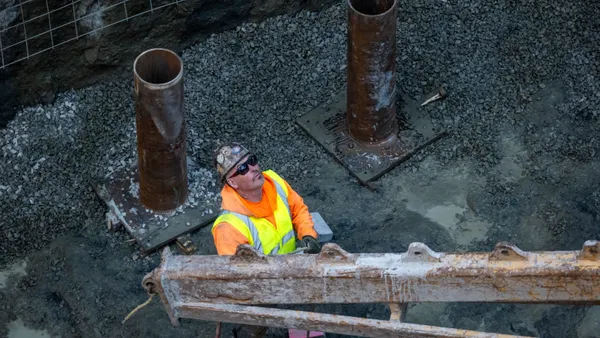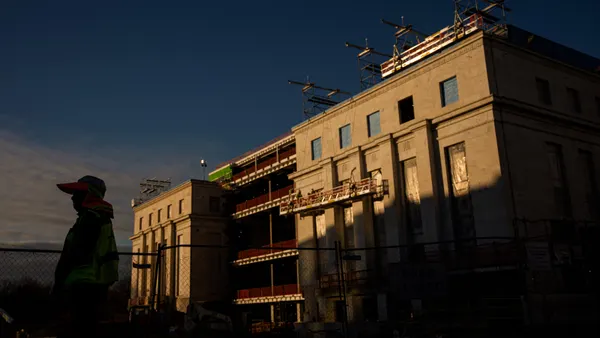Dive Brief:
- President Donald Trump on Jan. 31 signed an executive order asking federal agencies to promote the purchase of American-made materials by contractors working on infrastructure projects that receive federal grants or loans.
- Within 90 days, agencies covered by the order must submit their plan as to how they will encourage contractors on such projects to buy domestically-produced products including iron, aluminum, steel and cement. Within 120 days, agencies must also report any "tools, techniques, terms, or conditions” that they have used or believe they should use to promote the agenda outlined in the executive order.
- Agency heads were also asked to consider in their reports whether a Buy American mandate on projects that receive federal financial assistance would be feasible.
Dive Insight:
By not purchasing materials made in the U.S. for projects that receive federal financial assistance, infrastructure contractors reportedly have left as much as $45 billion of sales for American manufacturers on the table, according to the Federal News Network. Each year, the federal government provides $700 billion of financial assistance in some form to more than 40,000 non-federal recipients, Peter Navarro, director of trade and industrial policy at the White House, told reporters in a telephone briefing about the president's order.
Those who have direct contracts with federal agencies already have to adhere to existing Buy American Act regulations unless the project receives a waiver. This move by the Trump administration expands on the president’s 2017 executive order that increased restrictions on the waivers that public agencies use to buy goods from foreign sources.
The president himself has allowed a few exceptions to his administration’s Buy American requirements. He gave a pass to the developer of the Keystone XL pipeline saying that the company had already placed steel orders with foreign steel suppliers before he executed the April order.
The government also gave Canada a waiver from the U.S. steel requirement for the Gordie Howe International Bridge project between Detroit and Windsor, Ontario. The Canadian government is financing its portion of the bridge and loaning Michigan $650 million for its share of construction costs.
Construction industry groups like the Associated General Contractors of America are not in favor of these types of limitations on material sourcing and claim that they restrict the competitiveness of American contractors domestically by forcing them to include higher-priced American material in their bids and internationally if foreign governments decide to retaliate with their own protectionist measures. Buy American regulations could also result in higher prices for materials in general, the AGC maintains, and are in violation of an existing treaty administered by the World Trade Organization.













